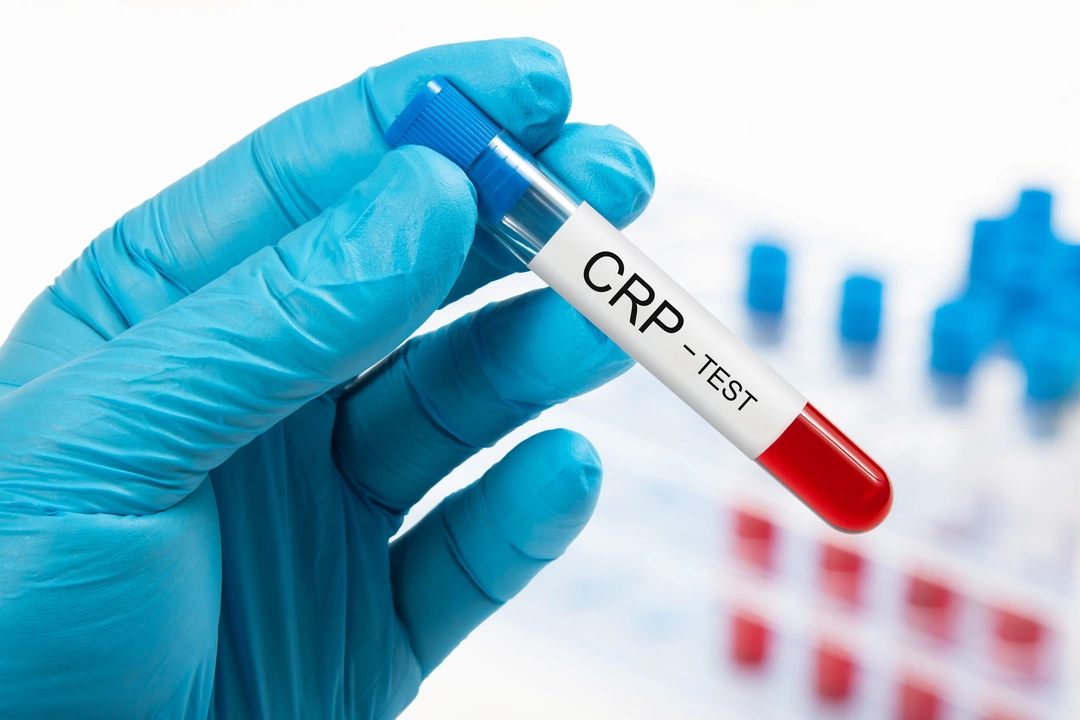Understanding Capecitabine and Its Effects on the Body
As a cancer patient undergoing capecitabine treatment, it is crucial to understand how this chemotherapy drug works and its potential effects on the body. Capecitabine is an oral medication used to treat various types of cancer, including breast, colorectal, and stomach cancer. It works by slowing down the growth of cancer cells, giving the body's immune system a chance to fight the disease more effectively. However, like other chemotherapy drugs, capecitabine can cause side effects and interact with other medications, making regular blood tests essential during treatment.
Monitoring Blood Cell Counts during Treatment
One of the primary reasons for regular blood tests during capecitabine treatment is to monitor your blood cell counts. Chemotherapy drugs can affect the production of blood cells in the bone marrow, leading to a decrease in white blood cells, red blood cells, and platelets. This can result in an increased risk of infections, anemia, and bleeding problems. By closely monitoring your blood cell counts, your healthcare team can adjust your treatment plan accordingly, ensuring that you receive the most effective and safe dose of capecitabine while minimizing potential complications.
Assessing Liver and Kidney Function
Capecitabine is metabolized in the liver and excreted through the kidneys, making it particularly important to monitor the function of these organs during treatment. Regular blood tests can help detect any changes in liver and kidney function before they become severe, allowing your healthcare team to make necessary adjustments to your treatment plan. This proactive approach helps to reduce the risk of severe liver and kidney damage, optimizing your overall health and the effectiveness of your capecitabine treatment.
Identifying and Managing Side Effects
Like all chemotherapy drugs, capecitabine can cause side effects, some of which may be severe or even life-threatening. Regular blood tests can help your healthcare team identify and manage these side effects early on, reducing the risk of complications and improving your quality of life during treatment. Some common side effects of capecitabine include diarrhea, nausea, vomiting, fatigue, and hand-foot syndrome. By keeping a close eye on your blood test results, your healthcare team can determine if any of these side effects are becoming problematic and take appropriate action, such as adjusting your medication or providing additional support to manage symptoms.
Ensuring Optimal Treatment Efficacy
Finally, regular blood tests during capecitabine treatment are vital for ensuring the optimal efficacy of your treatment plan. By monitoring your blood cell counts, liver and kidney function, and other relevant markers, your healthcare team can make well-informed decisions about your treatment, maximizing the benefits and minimizing the risks. Furthermore, tracking your progress through blood tests can provide valuable information about how your body is responding to the treatment, allowing your healthcare team to make timely adjustments and ultimately improving your chances of a successful outcome.





Heather Wilkinson
May 20, 2023 AT 03:20Hey there! 😊
Keeping up with those blood tests might feel like a chore, but think of them as your personal health dashboard.
Regular checks let your team spot any hiccups early, so you can stay on track with your capecitabine plan.
Stay strong and keep that positive vibe going!
Henry Kim
May 29, 2023 AT 09:33I totally get how overwhelming the routine can seem.
Seeing the numbers change step by step usually brings a quiet sense of control.
Your care team uses those trends to keep the treatment safe and effective.
Take each test as a small win for your journey.
Neha Bharti
June 7, 2023 AT 15:46Every lab draw is a moment of self‑reflection on how your body is responding.
Capecitabine is powerful, and the labs are the compass that guides dosage.
Stay concise with your notes: date, result, any new symptom.
That habit makes conversations with oncologists smoother.
Remember, consistency in monitoring is a form of self‑respect.
Samantha Patrick
June 16, 2023 AT 22:00Just a quick heads‑up: make sure you bring a list of all meds you’re takin'.
Your liver and kidney numbers can shift if something new is added.
Also, keep an eye on the platelet count – low counts can cause easy bruisin'.
Don’t hesitate to ask the nurse to double‑check any weird values.
Ryan Wilson
June 26, 2023 AT 04:13Honestly, skipping tests feels like cheating yourself out of safety.
We all want to feel invincible, but these numbers keep you honest.
The system expects you to be responsible, not reckless.
If you ignore the labs, you’re basically gambling with your health.
Take the responsibility seriously; it’s the only ethical way to fight this.
EDDY RODRIGUEZ
July 5, 2023 AT 10:26Alright, power‑up time! 🚀
Think of each blood draw as a checkpoint in a video game – beat the boss level of side effects.
Your liver and kidneys are the gatekeepers; the labs tell them when to open or close the gate.
When the numbers look good, you get to level up your treatment dose.
If something’s off, the docs hit the pause button and adjust.
Stay focused, stay fierce, and keep crushing this journey!
Christopher Pichler
July 14, 2023 AT 16:40Ah, the sweet symphony of CBCs, LFTs, and eGFRs – truly the Mozart of oncology monitoring.
Sure, you could skip them and hope for the best, but why gamble when the data is right there?
Let’s face it, the jargon is heavy, but it’s the language of safety.
If you love efficiency, these labs are the ultimate KPI dashboard.
VARUN ELATTUVALAPPIL
July 23, 2023 AT 22:53Listen!!!, the frequency, the timing-don’t forget!!!, every single lab is a data point!!!, and you, you must record them!!!, otherwise, the whole treatment protocol collapses!!!, understand???
April Conley
August 2, 2023 AT 05:06Stick to the schedule, it saves lives.
Sophie Rabey
August 11, 2023 AT 11:20Oh wow, another reminder that blood work is the *fun* part of chemo – because who doesn't love needles?
But seriously, those labs are the only way to catch the silent culprits like neutropenia before they crash the party.
If you keep the numbers in the green, you’re basically playing a low‑risk, high‑reward game.
Stay chill, stay updated, and let the data do the talking.
Bruce Heintz
August 20, 2023 AT 17:33Hey friend, just a gentle nudge to keep those test dates on your calendar!
Every result is a piece of the puzzle that helps your doctors tailor the capecitabine dose.
When you notice any shifts, let your team know right away.
We’ve got your back every step of the way. :)
richard king
August 29, 2023 AT 23:46Imagine your bloodstream as a bustling metropolis, each cell a citizen bustling with purpose.
The lab work is the city council, surveying the populace for any signs of unrest.
When capecitabine rolls through, it’s like a sudden festival – vibrant, but potentially chaotic.
Regular inspections keep the streets clear of traffic jams, preventing gridlock in your marrow.
In this grand narrative, you are both the protagonist and the chronicler, noting every twist.
Let the numbers guide your story, not the other way around.
Dalton Hackett
September 7, 2023 AT 03:20Keeping up with regular blood tests during capecitabine treatment is not just a recommendation, it is a cornerstone of safe oncology care.
The first reason is the monitoring of hematologic parameters; chemotherapy agents frequently suppress bone marrow activity, leading to neutropenia, anemia, and thrombocytopenia, each of which carries distinct clinical risks.
When a patient’s white blood cell count drops below a critical threshold, the likelihood of infection skyrockets, potentially turning a mild cold into a life‑threatening sepsis.
Similarly, a falling hemoglobin level can precipitate fatigue, dyspnea, and decreased performance status, which may impair a patient’s ability to tolerate subsequent cycles of therapy.
Platelet declines increase bleeding propensity, making even minor injuries a cause for concern.
Second, the liver and kidney function tests provide a window into the organs responsible for metabolizing and excreting capecitabine.
The drug is converted to 5‑fluorouracil in the liver, and any hepatic dysfunction can cause accumulation of toxic metabolites, heightening side‑effect severity.
Renal impairment, on the other hand, reduces clearance, potentially necessitating dose reductions to avoid overdose.
Regular assessment of ALT, AST, bilirubin, creatinine, and eGFR allows clinicians to intervene before organ damage becomes irreversible.
Third, capecitabine can provoke specific adverse events such as hand‑foot syndrome, diarrhea, and mucositis; laboratory markers can signal early organ stress that precedes overt symptoms.
For example, an unexplained rise in alkaline phosphatase may hint at subclinical cholestasis before jaundice appears.
Early detection enables dose adjustments, supportive medications, or even temporary treatment pauses, thereby preserving quality of life.
Moreover, longitudinal lab data create a trend profile that helps oncologists predict treatment efficacy.
If tumor markers or certain blood chemistry trends improve in parallel with stable hematologic values, the therapeutic regimen can be continued with confidence.
Conversely, stagnant or worsening labs may prompt a switch to alternative therapies, sparing the patient from ineffective toxicity.
Finally, the psychological reassurance that comes from seeing objective data cannot be overstated; patients often feel more empowered when they understand that their treatment is being closely monitored.
In summary, regular blood tests during capecitabine therapy serve multiple essential functions: safeguarding against hematologic toxicity, ensuring hepatic and renal safety, identifying early side‑effects, guiding dose modifications, and providing a measurable framework for assessing treatment response.
Adhering to the testing schedule is therefore a vital component of any comprehensive cancer care plan.